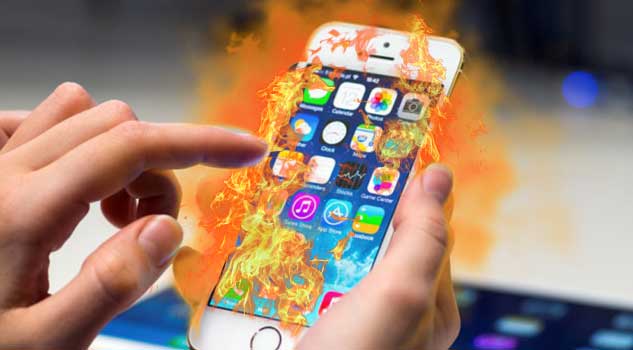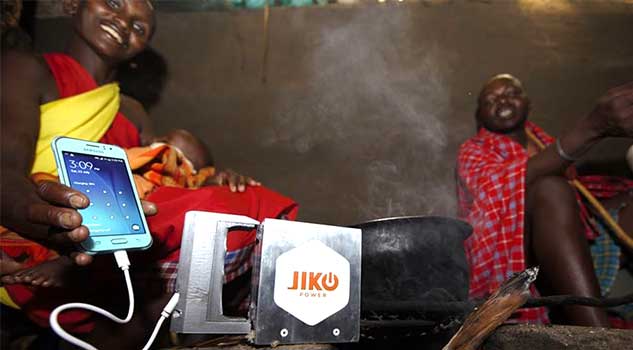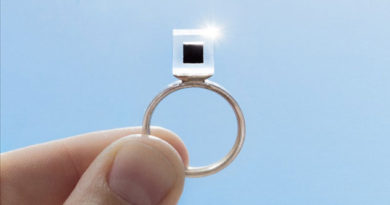Phone and Fire – Two Unlikely Partners
According to University of Washington-based startup JikoPower, approximately 80 percent of Kenyans have a cell phone, but only 20 percent of them have electricity. In some cases, this means that people in rural locations have to spend hours walking long distances in order to use paid charging stations.
JikoPower, however, aims to bring the power to the people’s cooking fires, with its Spark thermoelectric generator. Like other thermoelectric appliances, the aircraft-grade aluminum alloy device incorporates a flat module that generates electricity when there’s a significant temperature difference between its two sides.
In the Spark’s particular case, it utilizes a flange-like metal probe that sticks out to one side. That probe is inserted between the flames of a cooking fire and the bottom of a cooking pot.
As the fire heats the probe, heat travels down it and beneath the thermoelectric module, warming its underside. A reservoir of water located above the module, meanwhile, keeps its top side relatively cool.
The resulting temperature difference (even if the water in the reservoir is brought to a boil) is enough to generate an electrical current of 2 to 5 watts. From there, users simply plug their phone or other device into the Spark.
According to JikoPower, prototypes that were recently tested in Kenya and Uganda were able to fully charge a phone within two hours. The company states that the final market-ready version should be twice as fast.
Besides eliminating time- and effort-consuming treks to charging stations, the Spark does offer some other benefits. Instead of paying to use those far-away charging stations, for instance, users could make money by selling charging time to members of their community.
Additionally, if they were to charge up a battery-powered LED light instead of a phone, their children could do homework in the evening without resorting to pollution-causing kerosene lamps. Of course, users could also remain more connected to the online world, and make phone calls more often.
“Our plan is to sell to people in developing countries, like Kenya, through existing distribution networks,” JikoPower VP Marene Wiley tells us. “We are interested in working with NGOs or grant organizations to run pilots, and subsidize/distribute the JikoPower Spark in areas where people make significantly less.”
Perhaps not surprisingly, this isn’t the first time we’ve seen this sort of technology. RTI International has been developing a complete thermoelectric cookstove for use in developing nations, which is similar to the more camping-oriented BioLite stove.
Source: JikoPower Inc.
Share this:





